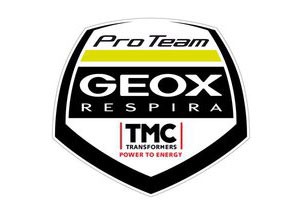Image issues and financial problems likely reason for ongoing drop in teams
 Despite having a rider in Alberto Contador who has taken three out of the past five Tours de France, Spanish cycling will feature its lowest-ever number of top teams in 2012. As noted by Biciciclismo, only four squads will feature in the first two divisions this coming season; Movistar and Euskaltel-Euskadi will have World Tour status, while Caja Rural and Andalucia will be Pro Continental teams.
Despite having a rider in Alberto Contador who has taken three out of the past five Tours de France, Spanish cycling will feature its lowest-ever number of top teams in 2012. As noted by Biciciclismo, only four squads will feature in the first two divisions this coming season; Movistar and Euskaltel-Euskadi will have World Tour status, while Caja Rural and Andalucia will be Pro Continental teams.
Of those, Euskaltel-Euskadi is facing an uncertain future as its main sponsor may stop at the end of 2012.
There will also be just two continental teams, namely Burgos 2016 and Orbea. Last season there were five teams in the top two divisions, with the now-defunct Geox TMC team being present; there were also five in 2010, plus three continental teams, while in 2009 the peloton contained six ProTour and Pro Continental squads.
The high point in the past decade occurred in 2006, and this gives a clue as to one likely reason for the decrease. Then there were nine top teams plus five continental squads; the former group included the ProTour squads Caisse d’Epargne-Illes Balears, Euskaltel-Euskadi, Liberty Seguros-Würth/Astana and Saunier Duval-Prodir, plus the Pro Continental 3 Molinos Resort, Andalucía-Paul Versan, Comunidad Valenciana, Kaiku and Relax-GAM.
In May of that year cycling’s image took a serious blow in the country when Operación Puerto began. Raids on Dr. Eufemiano Fuentes’ clinic in Madrid plus other locations uncovered a huge doping network which involved 200 sportspeople, of which approximately a quarter were cyclists. The broader group has never been identified, with the governing bodies of football, tennis and athletics showing no interest in digging deeper, but a number of top riders were implicated from the cyclists’ group.
In addition to foreign riders such as Jan Ullrich and Ivan Basso, this selection included some of Spain’s big names. The case dragged on as the Judge Antonio Serrano blocked proceedings on more than one occasion, causing the headlines to be prolonged and more damaging. The implication of Alejandro Valverde, who won the 2009 Vuelta a España, was a blow, but so to his persistent denials, which chipped away at the sport’s credibility more than a quick admission would have.
Contador’s own positive test for Clenbuterol was another blow, putting a question mark over the third of his Tour victories. A decision is expected on that case next month but whatever the outcome, having a banned substance in his system plus the World Anti Doping Agency alleging a blood transfusion is not good for cycling’s image in Spain.
As much as the sport’s credibility is a factor, another important consideration is Spain’s economy. The country has a staggeringly-high rate of unemployment at present, with well over four million people out of work. This represents approximately ten percent of the total population and when children, students and retired people are factored into this figure, it shows that a very substantial proportion of the workforce is on the sidelines.
This leads to less money in the economy, and less companies with the funding to invest in big cycling teams. For Spain, which traditionally has been a very strong cycling nation, the future is consequently an uncertain one.
Spanish pro squads:
2012 4 (+ 2 continental teams)
2011: 5 (+ 2 continental teams)
2010: 5 (+ 3 continental teams)
2009: 6 (+2 continental teams)
2008: 7 (+2 continental teams)
2007: 7 (+4 continental teams)
2006: 9 (+5 continental teams)
2005: 7 (+4 continental teams)
2004: 8
2003: 7
2002: 6
2001: 6
2000: 7